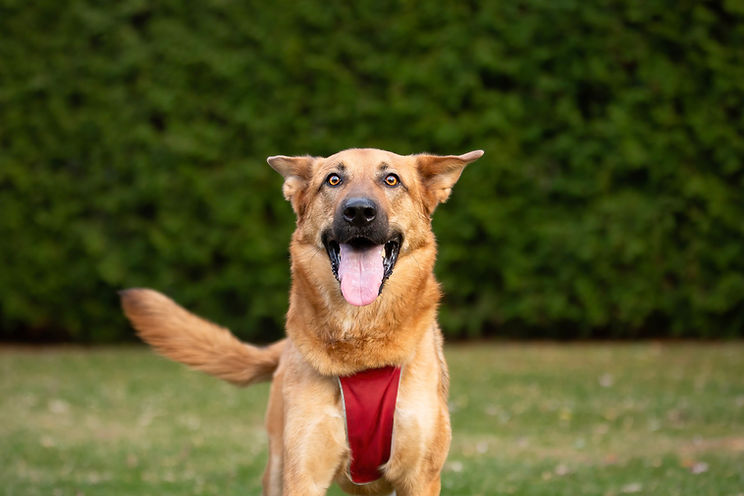How veterinary behaviour can help pets with fear issues
Wiki Article
Recognizing the Role of a Vet Behaviourist in Pet Dog Training and Well-being
The duty of a veterinary behaviourist is crucial in addressing the elaborate connection in between animals and their proprietors. They combine vet medicine with insights from animal behavior scientific research to tackle concerns like aggression and stress and anxiety. Unlike traditional instructors, their approach concentrates on the underlying root causes of these habits. This nuanced point of view questions regarding the performance of standard training methods and just how a much deeper understanding can change pet wellness. What methods do they employ to accomplish these results?What Is a Vet Behaviourist?
A vet behaviourist is a specialized professional that concentrates on understanding and attending to the behavior issues of animals, especially pets. Their know-how incorporates veterinary medicine and animal actions science, enabling them to diagnose and treat a broad array of behavioral issues - board certified veterinary behaviourist. These specialists often hold sophisticated levels, such as a Master's or PhD in animal actions, and are licensed by appropriate companies, guaranteeing they have a deep understanding of pet psychologyVet behaviourists analyze animals through thorough observation and analysis, thinking about elements such as genes, setting, and training history. They develop tailored therapy strategies, which might consist of desensitization techniques, favorable support techniques, and ecological adjustments. Collaboration with pet proprietors is necessary, as they offer assistance and support throughout the training process. Inevitably, the objective of a veterinary behaviourist is to enhance the health of the animal while cultivating an unified partnership in between pet dogs and their owners.
The Relevance of Comprehending Pet Actions
Recognizing pet habits is essential for both pet owners and specialists in the area of animal care, as it lays the foundation for reliable interaction and training. Acknowledging exactly how animals regard their atmosphere and respond to stimuli enables caregivers to produce an extra harmonious living situation. Understanding into behavior hints, such as body movement and vocalizations, cultivates more powerful bonds between pet dogs and their proprietors. By valuing the natural reactions and demands of various varieties, individuals can customize their training approaches to suit these elements, promoting better learning and collaboration. Additionally, a solid understanding of behavioral scientific research aids in identifying stressors and potential triggers, enabling positive interventions. In general, comprehending animal actions not only boosts the health of pets yet likewise enriches the experiences of those who take care of them, eventually causing healthier, better relationships.Usual Behavioral Issues Addressed by Veterinary Behaviourists
Vet behaviourists frequently resolve common behavior issues in pets, including hostility and worry actions. They additionally concentrate on stress and anxiety and tension administration, which can greatly influence a pet's wellness. Recognizing these concerns is crucial for creating effective training and intervention approaches.Hostility and Worry Responses
While several pet dog owners might see hostility and concern responses as straightforward behavior issues, these complicated responses frequently stem from underlying stress and anxiety or previous injury. Vet behaviourists play a crucial duty in recognizing the root triggers of these habits, which can manifest in numerous forms, including growling, attacking, or too much fear of specific circumstances. Understanding these triggers is vital for developing effective training methods tailored to each family pet's special scenarios. Behaviourists utilize methods such as desensitization and counter-conditioning to help animals handle their fears and aggression. Additionally, they educate animal owners regarding ideal monitoring techniques, emphasizing the relevance of persistence and consistency. Addressing hostility and concern responses not only improves the pet dog's quality of life but additionally strengthens the bond in between animal and owner.Anxiousness and Stress Administration
Anxiety and tension are widespread issues that many pet dogs deal with, often arising from changes in their setting, lack of socialization, or previous negative experiences. Vet behaviourists play an essential function in identifying the underlying root causes of these problems. They use different techniques, including behavioral modification, desensitization, and counter-conditioning, to aid animals take care of anxiousness. Additionally, they might advise ecological changes, such as creating risk-free rooms or giving enrichment activities that advertise relaxation. Cooperation with family pet proprietors is necessary, as behaviourists direct them in recognizing their family pet's signals and applying reliable coping approaches. By dealing with stress and anxiety and stress and anxiety, veterinary behaviourists contribute significantly to boosting the general well-being and high quality of life for pets and their families.How Vet Behaviourists Vary From Standard Instructors
Veterinary behaviourists vary from standard trainers mainly in their academic backgrounds and training. While typical instructors typically focus on obedience and basic commands, vet behaviourists emphasize understanding and dealing with underlying behavioral problems, integrating clinical factors to consider into their technique. This distinctive focus enables them to give a more comprehensive therapy for pet dogs with complicated behavior difficulties.Education and Training Differences
Understanding the distinction in between vet behaviourists and conventional instructors is web essential for animal owners seeking effective training solutions. Veterinary behaviourists possess advanced levels in vet medication, usually complied with by specialized training in pet practices. This education and learning equips them to attend to intricate behavioural issues that might come from medical problems or psychological elements. On the other hand, standard trainers commonly have qualifications from training programs that concentrate on obedience and basic commands without diving right into the underlying emotional or clinical elements. While both specialists aim to boost family pet practices, vet behaviourists can identify and deal with behavioural troubles holistically, incorporating medical understanding right into training strategies. This critical distinction highlights the relevance of choosing the best specialist based upon the animal's specific demands.Concentrate On Behavioral Issues
Addressing behavioural issues needs a nuanced approach that distinguishes veterinary behaviourists from standard trainers. While standard instructors commonly focus on obedience and fundamental commands, veterinary behaviourists discover much deeper right into the underlying reasons for problematic practices. They employ an extensive understanding of animal psychology and habits alteration methods, which are rooted in clinical study. This competence enables them to determine problems coming from anxiety, anxiety, or hostility, instead of simply resolving surface-level signs and symptoms. In enhancement, veterinary behaviourists evaluate the animal's general wellness, taking into consideration environmental aspects and the pet's history. By incorporating clinical understanding with behavioral methods, they Get More Info supply customized remedies that promote long-term behavioural adjustment, ensuring both the pet's and owner's lifestyle are noticeably boosted.Medical Factors To Consider Included
While traditional instructors may neglect underlying medical problems, veterinary behaviourists focus on an extensive assessment of a family pet's wellness as a fundamental step in dealing with behavioral troubles. This method enables them to recognize possible clinical problems that may add to unwanted practices, such as stress and anxiety, pain, or neurological problems. By integrating clinical assessments into their technique, veterinary behaviourists can collaborate with vets to ensure a holistic understanding of the family pet's health. Additionally, they can suggest suitable treatments or adjustments to training plans based upon medical searchings for. This substantial point of view differentiates vet behaviourists from typical fitness instructors, as they resolve both behavioural and health-related aspects, inevitably bring about more reliable and lasting end results for pets and their owners.
The Refine of Collaborating With a Vet Behaviourist
Teaming up with a vet behaviourist involves a systematic method to addressing an animal's behavioral issues. The process starts with a considerable analysis, where the behaviourist gathers thorough information concerning the family pet's history, atmosphere, and specific behaviors that are bothersome. This usually consists of sets of questions, meetings with the family pet owner, and often observations of the pet dog in its atmosphere.Adhering to the evaluation, the veterinary behaviourist develops a customized intervention strategy that might consist of behavioral modification techniques, training methods, and, if necessary, referrals for medical analyses. canine behaviourist near me. The plan is designed to be practical and achievable, guaranteeing that it fits effortlessly into the pet dog proprietor's way of living
Succeeding follow-up sessions are vital to keep track of progress, adjust methods, and offer support. This joint initiative not only aims to modify undesirable actions yet likewise to improve the total health of the animal, making certain a harmonious partnership in between the family pet and its proprietor.
Enhancing Your Pet dog's Lifestyle With Behavioral Assistance
Enhancing a pet dog's lifestyle via behavioral support is essential for cultivating a healthy and balanced and satisfying connection in between pets and their proprietors (canine behaviourist near me). Vet behaviourists play an important duty in identifying and attending to behavioral issues that may hinder a family pet's well-being. With tailored strategies, they aid alleviate stress and anxiety, fear, and aggression, inevitably promoting an extra balanced and satisfied family petBehavioral assistance encompasses various strategies, consisting of favorable reinforcement, environmental enrichment, and socializing. By executing these approaches, owners can create a caring environment that motivates favorable actions. This not just improves the pet's emotional health and wellness yet also enhances the bond between pet dog and proprietor.
Furthermore, normal visite site consultations with a veterinary behaviourist guarantee that any emerging behavior problems are quickly dealt with, avoiding acceleration. On the whole, spending in behavioral support is a positive strategy that greatly enriches an animal's life, leading to boosted physical and psychological wellness end results.
Frequently Asked Questions
What Credentials Do Veterinary Behaviourists Have?
Veterinary behaviourists usually hold a vet level, complied with by specialized training in pet actions. Numerous likewise have qualifications from identified companies, showing their expertise in resolving pet habits problems and advertising overall pet wellness.Can Vet Behaviourists Suggest Medication for Pets?


Vet behaviourists, having vet levels and specialized training, can indeed recommend drug for family pets. This capability permits them to resolve underlying behavioral issues successfully, commonly integrating medicinal treatment with behavioral alteration techniques for ideal results.
How Long Does Behavior Modification Normally Take?
Behavioral treatment period differs substantially, commonly varying from a couple of weeks to numerous months. Variables affecting this timeline consist of the family pet's certain problems, uniformity of training, and the proprietor's interaction at the same time.Are Remote Consultations Offered With Veterinary Behaviourists?

How Much Does a Veterinary Behaviourist Examination Expense?
The cost of a vet behaviourist consultation typically ranges from $100 to $300, relying on factors such as area, experience, and session size. Added costs may get follow-up consultations or specialized services.Report this wiki page